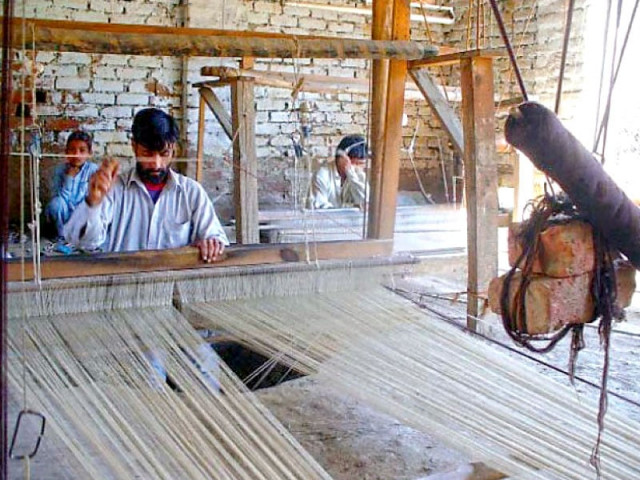Weaving a future for Islampur’s shawl industry
SMEDA helps village recover from the economic ravages of militancy.

Islampur, a tiny village in Swat, is known for its fine-quality handmade woollen shawls, which are available for a bargain at Rs450 a piece. However, prices sometimes go as high as Rs14,000 per piece, depending on the quality of craftsmanship.
The 50,000 or so dwellers of Islampur are almost wholly dependent on this centuries old craft. Around 5,000 weavers, including a sizable number of women, work inside their houses using wooden looms of a local design, known as ‘khaddi’ in the local language. At least 85 small and medium shawl manufacturing units are located in the scenic village.
The small cottage industry was hit hard by insurgency and flooding in the past, and production had all but ended. After the successful military operation in Swat, locals who had migrated to other parts of the country returned to their hometowns, but faced problems in restarting their businesses due to the shortage of available funding.
Around 50 industrial units in the shawl manufacturing cluster in Islampur have now been rehabilitated successfully by the Small and Medium Enterprise Development Authority (Smeda) through the provision of grants under the Economic Revitalisation of Khyber Puktunkhwa and Fata (ERKF) project.
Javed Khattak, the provincial chief of Smeda, told The Express Tribune that monetary grants had been provided to 50 units to help them restart their business, while 40 more cases awaited approval. “This project is being funded by the World Bank through the ERKF, which is a joint venture between Smeda, the World Bank and the Khyber-Pakhtunkhwa government,” he said. He added that Smeda has also acquired land for the establishment of a common facility centre (CFC) for villagers using its own resources.
“This CFC will have a spinning machine.
These weavers use sheep wool in the production of shawls, which is bought locally, but sent all the way to Gujranwala for spinning. We have decided, therefore, to provide them with a spinning machine in their own village, which will save these people time and money,” he explained. The total cost of the project is estimated at Rs40 million.
ERKF Manger Sarmard Khan told The Express Tribune that they received $20 million through a multi-donor trust fund, for which 11 countries provided funds and the World Bank took responsibility for its utilisation.
“In Islampur, we have provided 50 units with grants from the fund. The average grant is Rs100,000, which is sufficient enough for a weaver to purchase yarn, as well as a hand loom, and restart his or her business,” he said. “This is basically a business rehabilitation grant,” he added. The maximum limit of the grant is Rs2.5 million.
“These people had been hit hard by the insurgency crisis and floods. We are trying to help these skilled individuals restart their businesses anew,” he said.
Published in The Express Tribune, December 9th, 2012.



















COMMENTS
Comments are moderated and generally will be posted if they are on-topic and not abusive.
For more information, please see our Comments FAQ